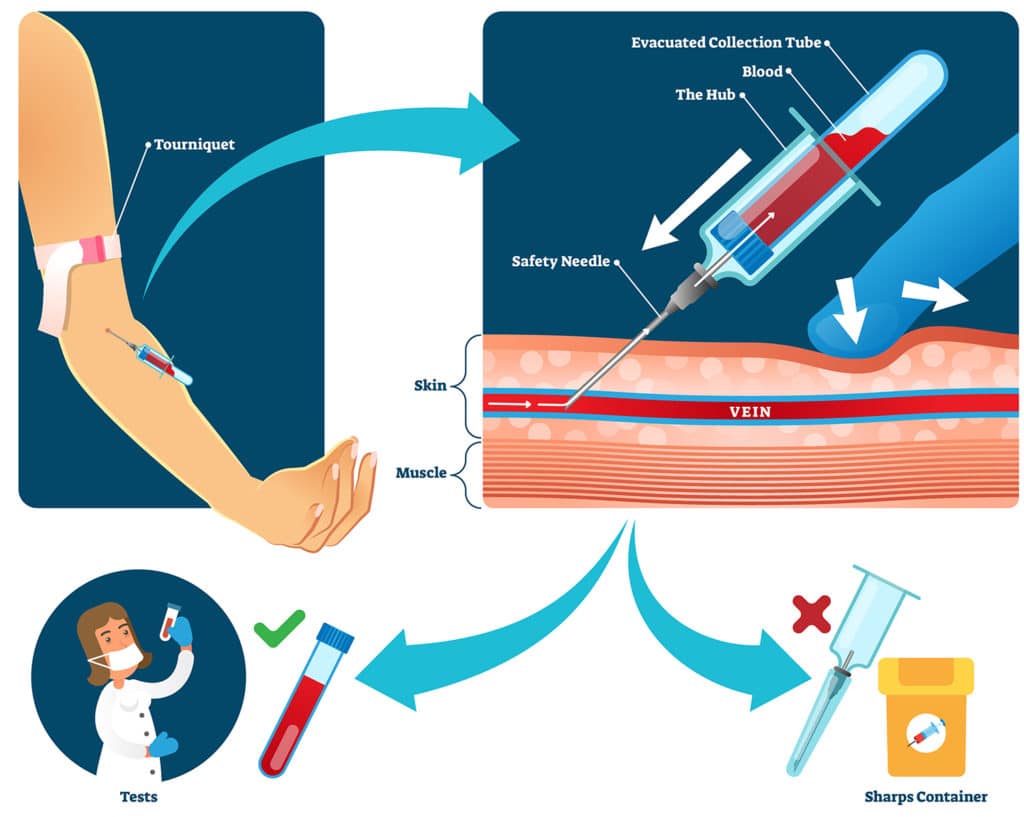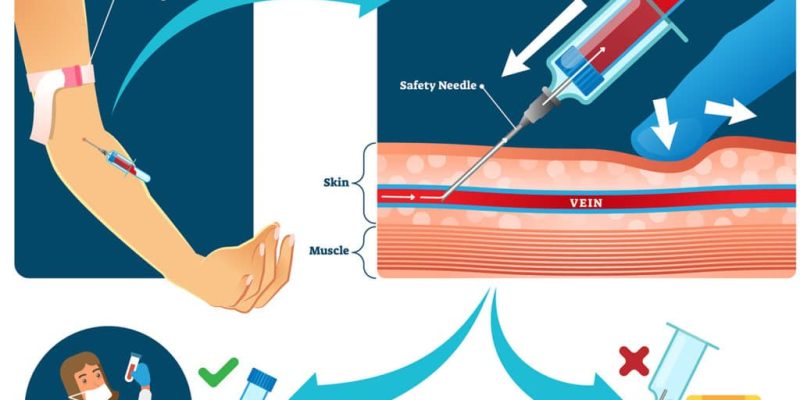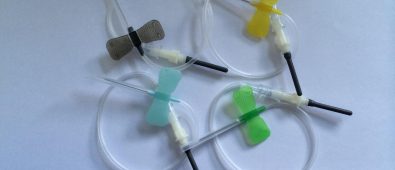The right tools and equipment are critical for any medical professional, especially a phlebotomist. Affordable 23 Gauge Butterfly Needles for medical and aesthetic practices are designed to help technicians make accurate and comfortable blood draws, allowing them to focus on honing their skills. Here are some tips that every technician should follow to improve their phlebotomy skills.
1. Careful preparation
Before you start, preparing everything you need to ensure a successful collection is important. This includes cleaning supplies such as alcohol swabs, gauze, plasters and gloves; collection tubes; other necessary equipment; and your own butterfly needle. It’s best to use a quality needle, such as an affordable 23-gauge butterfly needle, which is specially designed for medical professionals who need precision when taking samples from patients with delicate veins.
2. Take your time
Phlebotomy is not a race, so it’s important to take your time to draw blood from your patient. Rushing through the process can be dangerous for both you and the patient, so allow plenty of time for each step of the procedure – from prepping the area with antiseptic wipes or spray to positioning the patient correctly in an easily accessible vein site to inserting the needle correctly into the arm or hand without causing undue pain or discomfort.

3. Practice makes perfect
It’s important to practice regularly to develop good technique when using needles such as the affordable 23-gauge butterfly needles. Nothing can replace regular practice when it comes to getting better at taking blood with greater comfort and efficiency for both you and your patients. Practicing will also give you more confidence when dealing with difficult veins that may require several attempts to obtain sufficient sample material for testing.
4. Stay calm and confident
Remaining calm in challenging situations is key to becoming an expert phlebotomist over time; simply taking a deep breath when things don’t go quite to plan will help to manage stress levels and ensure that all procedures continue smoothly, regardless of what unexpectedly happens along the way.
5. Follow safety protocols
Safety protocols must be followed at all times to avoid potential incidents caused by the mishandling of needles or other related equipment or materials used during a procedure. Understanding proper waste disposal techniques, tracking patient specimens, and wearing appropriate clothing, such as gloves, masks & gowns, etc., is also essential when performing any phlebotomy. Following these safety protocols will help reduce errors and prevent costly mistakes in the future.
6. Familiarise yourself with different types of blood samples
Knowing how different types of blood samples should be taken makes a big difference to the efficiency and effectiveness of the procedure. For example, finger prick vs venipuncture etc – there are often specific instructions given by the doctor on these matters which must be followed closely throughout the procedure. Understanding how certain types of collection work best in certain conditions & scenarios gives the technician greater control over the situation they’re working in, making the job much easier overall.

7. Keep up to date with new technologies
The world of medicine is advancing rapidly, so staying up to date with new technologies available within the industry is important if one wants to stay ahead of the competition & deliver the highest standard of care possible to those who seek assistance from us directly or indirectly. Phlebotomists have access to a large selection of tools and accessories, such as affordable 23 gauge butterfly needles, which make jobs easier, allowing them to perform their jobs more accurately and faster than ever before, resulting in improved services being provided to clients, ultimately leading to greater success in the long run.
8. Monitor your performance regularly
Monitoring performance provides insight into areas where improvements are needed. Technicians know upon completion whether the task was carried out successfully allows them to assess themselves properly and identify areas that require special attention and further development in order to achieve higher standards … Keeping track of progress lets people objectively evaluate their own skills and allows them to keep pushing boundaries aiming for even better results next time around learning curves steep but rewarding.




